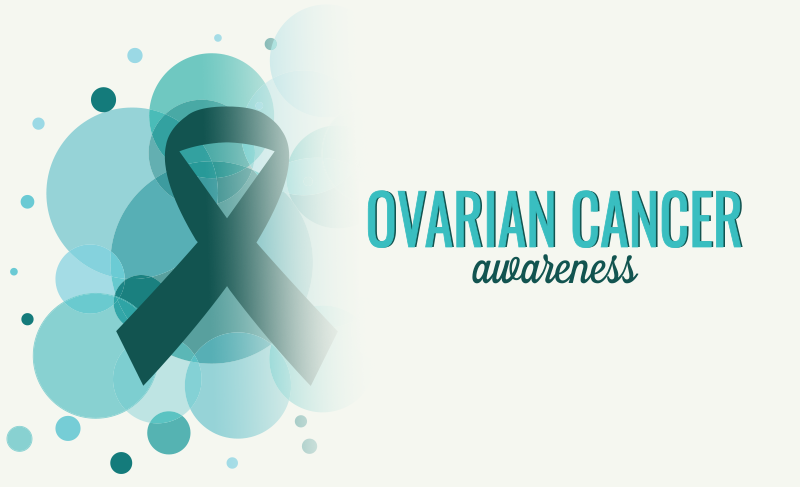Ovarian cancer is a rare but serious cancer in women. About one in 78 women are at risk of getting ovarian cancer during their lifetime.
Ovarian cancer is often called “the silent” killer because in its early stage, it rarely causes symptoms. Even advanced-stage ovarian cancer may cause few, non-specific symptoms. It’s important to know the signs and risks of ovarian cancer.
What are the Risk Factors?
There’s no way to know if you’ll get ovarian cancer. It’s typically diagnosed in middle-age and older women. Other risk factors include:
family history of ovarian cancer
BRCA1 or BRCA2 gene
history of breast, uterine, colorectal, cervical, or skin cancer
difficulty becoming pregnant or never given birth
endometriosis
Talk with your doctor about your risks.

How can You Lower Your Risk?
Pap tests don’t check for ovarian cancer, and often, symptoms don’t appear until it’s advanced. However, there are things you can do to lower your risk or help detect it early.
Get your annual well-woman exam.
Half of all ovarian cancer diagnoses are in women 63 and older, but younger women can get it, too. Having regular checkups increases your chances of finding cancer early when it’s most treatable.
Know your family history.
Tell your doctor if your mother, sister or daughter have had the disease. Your risk is higher if you have a family history.
Consider the pill.
Talk with your doctor about birth control pills. They may reduce your risk if used for five or more years.

What are the Symptoms?
Although ovarian cancer symptoms may seem like something else, it’s important to pay attention to your body and what’s normal for you. Symptoms include:
abnormal vaginal bleeding or discharge
pain or pressure in the pelvic area
abdominal or back pain
bloating
feeling full quickly after eating or difficulty eating
change in bathroom habits
The only way to know if your symptoms are ovarian cancer is to see your doctor. They can screen you for ovarian cancer and perform a diagnostic test if needed.
If you need to find a doctor, you can search by location, specialty and more through Provider Finder®.
You can also connect with a plan specialist about coverage and benefits or help finding a provider. They can even make an appointment for you! Call 1-866-355-5999 or chat in the BCBSTX App, 24 hours a day, seven days a week.